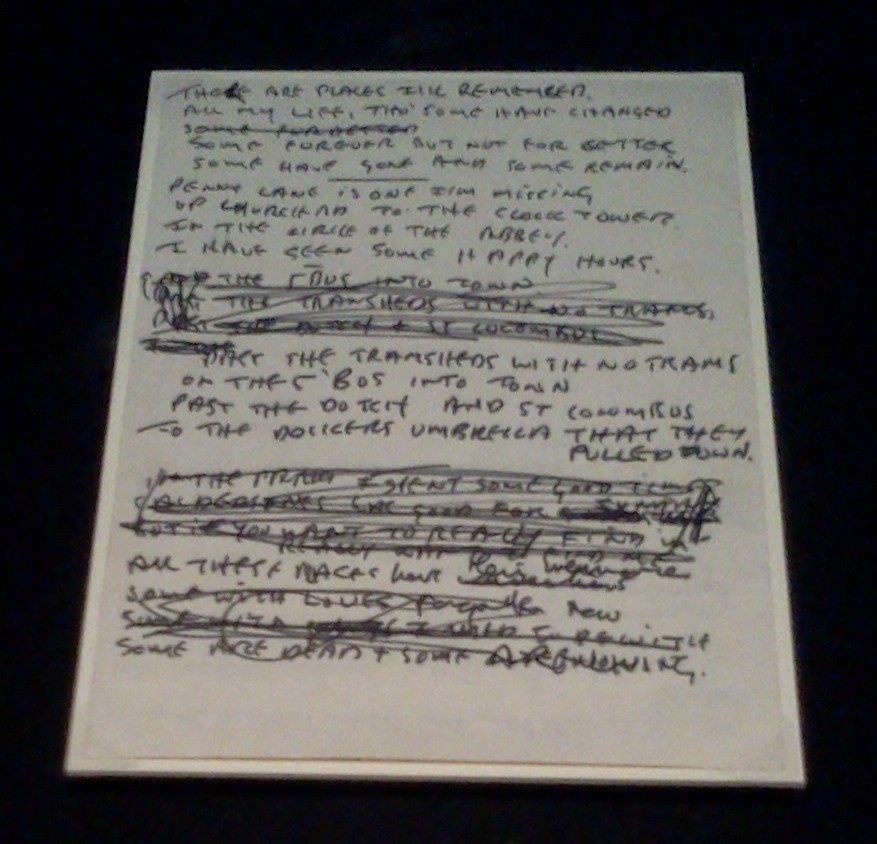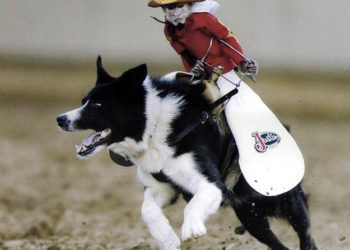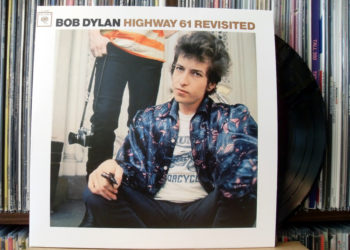One of my most treasured possessions is the set list from the second gig I ever went to. It was Counting Crows, on their first European tour, in Köln. My sister, my best friend and I got to go Without Our Parents. There was a road trip. There might have been a cheeky Pils or two. The band’s set was a mesmerizing introduction, for me, to the power of live performance in a tiny space. We made it into the TV footage. It was a special, memorable occasion in every possible way.
But best of all was getting the set list at the end, in the iconic handwriting that had featured on their first album cover. In those heady days before Twitter and Instagram made our idols as accessible to us as our own friends, that handwriting was a connection, a new way of identifying or finding an affinity with the writer, another characteristic to mimic. For a short period, I tried very hard to copy that handwriting for my own mix tapes, letters to friends, and the occasional essay.
So this recent news story caught my attention: the SongwritersFonts website, which provided freely available fonts based on the handwriting of musical heroes Kurt Cobain, Leonard Cohen, David Bowie, John Lennon and Serge Gainsbourg, has been shut down after threats of legal action in relation to intellectual property rights.

The Scholarly Kitchen audience seems like the right Venn diagram of publishing / music / copyright geeks to consult. What do you think?
Discussion
5 Thoughts on "Can Handwriting Be Copyrighted?"
I do not believe that in the US fonts are properly the subject of copyright. I believe they are the textbook example of that which is utilitarian and not copyrightable. Please, someone persuade me otherwise!
Typefaces can’t be copyrighted, but fonts (as software) can (https://www.lawyers.com/legal-info/intellectual-property/intellectual-property-licensing/company-sues-over-unauthorized-use-of-its-fonts.html).
How this plays out when a company makes a font (software) out of what could be called a typeface (the handwriting), I couldn’t say. The posting from the font creators didn’t state the legal reasoning from the estates that sent the cease and desist letter (I assume at their counsel’s advice).
You are correct. No copyright for typefaces. See Compendium of U.S. Copyright Office Practices, Section 313.3(D) Typeface and Mere Variations of Typographic Ornamentation .
While you cannot register a claim of copyright in a font, you can apply to register a claim of copyright in the software that makes the font applicable to a text. Of course, the software itself would need to meet the criteria for copyrightability of computer programs. Mitch Tuchman, Morningstar Law Group.
I am confused. To me it seems there are two completely different legal issues being conflated here. The “text” of the musicians is obviously covered by copyright. So how you get from those texts to a font begs the question. And if I were one of those musicians (or the owner of the those handwritten texts) I would certainly resist that process unless there were appropriate licenses and compensation. Right?


